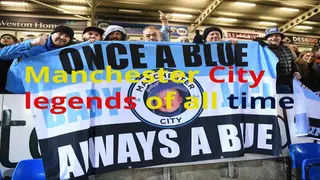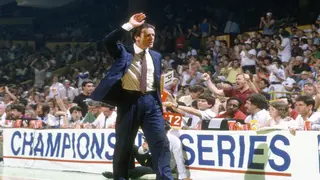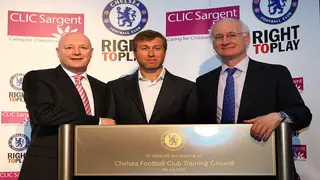Ranking of the top 10 Manchester City legends of all time
Football
PAY ATTENTION: Checkout Fixtures; Live Scores; Results and Tables section on Sports Brief and never miss out on the action ⚽️
A majority of Premier League clubs voted in favour of having new spending cap rules that could be introduced as early as 2025.
The vote, which took place at a shareholders' meeting on April 29, was reportedly supported by all clubs except Manchester United, Manchester City, and Aston Villa. Chelsea abstained from the vote.

The rules will replace the controversial Profit and Sustainability Rules (PSR) that have seen several clubs be at loggerheads with the Premier League this season.
Ranking of the top 10 Manchester City legends of all time
Football
Everton and Nottingham Forest have been docked points twice for flouting PSR rules, which dictate that a club cannot make losses of over £105 million, spread over three seasons.
Hey there: stay informed and follow us on Google News!
If approved, the PSR will be replaced with the new spending cap rules, which will see clubs have a limit on what they are allowed to spend on squad costs.
As Sky Sports explains, clubs not in Europe will be allowed to spend up to 85% of their revenue on squad costs, which include players' salaries, transfer fees and agent fees.
The transfer fees are amortised costs where a player's fee can be spread over multiple years.
Clubs in European competitions can spend up to 70% of their revenue, which is also UEFA policy in the body's revised rules from the 2025/2026 season.
Ranking! Who are the 10 best basketball general managers in the NBA right now?
NBA
However, the 85% of a more affluent club won't be the same as the 85% of a poorer club, and thus, to 'even the playing field', clubs will have a spending cap set at between four and five times the TV revenue of the least-paid club.
The last club currently gets £103.6mil. The figure will be multiplied by an agreed-upon number, and the amount gotten will be the maximum a club is allowed to spend on squad costs.
The dissenting voices to the proposal have argued that it limits the spending of rich clubs that have achieved their revenue through merit and sustained long-term success on and off the pitch.
There are concerns that the clubs might fail to compete effectively against other huge spenders in European competitions because of the limits. For example, Manchester City's revenue after their treble-winning campaign was £712.8 million.
A list of the most expensive Premier League takeovers in league history
Football
Ideally, they should be allowed to spend this revenue however they deem fit, but if the new proposal were in place, they would be forced to spend a significantly lower amount.
The proposal will most likely be discussed during an Annual General Meeting in June before it is adopted or amended further.
Sports Brief has also previously reported on the possible punishments Manchester City could face if found guilty of the 115 alleged financial breaches.
The English giants have been accused by the Premier League of multiple counts of financial impropriety in an investigation that lasted over four years.